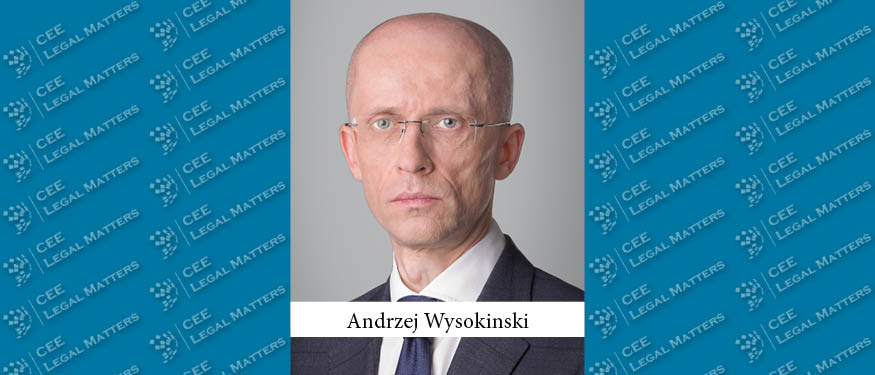Poland’s banking and finance sector has seen a steady rhythm over the past year, marked by continued demand for refinancing, acquisition financing, and cross-border transactions. Greenberg Traurig Partner Andrzej Wysokinski observes that while the legislative landscape remains stable, shifting interest rates and global volatility are shaping expectations for the months ahead.
CEELM: What work has been keeping your banking & finance practice busy over the past year?
Wysokinski: In many ways, it’s been business as usual for us, given our nature as a quintessentially corporate firm. Our workload over the past year has revolved around a steady flow of mandates from large corporate clients, some refinancing their existing debt, others seeking new financing, including syndicated loans and bond issuances. At the same time, we’ve continued to work closely with our M&A and private equity teams, providing financing support for acquisitions, whether for sponsors or buyers.
We’ve also remained consistently busy in areas that traditionally generate stable workstreams in Poland, such as real estate financing. Additionally, renewable energy financing, particularly for onshore and offshore wind, photovoltaics, and energy banks, has seen significant traction. Notably, we’re observing a growing number of cross-border transactions, with several clients expanding abroad into other CEE jurisdictions, the UK, and even the US. One ongoing matter involves a high-value investment by a Polish company in the US, a type of transaction we wouldn’t have seen five years ago. This suggests that Polish capital is maturing and becoming increasingly international in scope.
CEELM: Have any legislative shifts been impacting this work?
Wysokinski: Interestingly, the answer here is what hasn’t changed. There have been no revolutionary legislative shifts impacting our practice. The current government isn’t introducing major overhauls, and while there is a high volume of new laws, what we sometimes jokingly refer to as “legislative inflation," there’s nothing transformative for the banking and finance space. From a regulatory standpoint, everything remains fairly stable, which many market participants welcome, as no one is eager for rapid or unpredictable change.
CEELM: Finally, what do you think the next 12 months will look like?
Wysokinski: Looking ahead, we expect current trends to continue. With inflation decreasing and interest rates likely to be reduced once or twice by year-end, some clients are already preparing to refinance their existing debt. The renewables sector will remain a hotbed of investment, and given the inextricable link between banking and finance work and M&A and PE transactions, our involvement in these areas is set to persist.
Additionally, while we don’t anticipate a wave of insolvencies, we are seeing signs of volatility in specific sectors. This could stem from sectoral slowdowns or global macroeconomic factors, like tariffs that impact the German automotive sector, which in turn affects Polish suppliers. In such cases, we anticipate more “soft restructurings,” where financing terms are renegotiated without involving the courts. Overall, while the word “uncertainty” will continue to hover over the market, given ongoing global conflicts or shifts in US policy, we don’t foresee any dramatic upheavals. For us, it’s steady work with occasional bursts of change, rather than a revolution.
Finally, we are strongly enhanced by being a unified firm, not formed by mergers or verein, with the broadest US coverage and a great European, Middle Eastern, Asian, and Latin American presence. Our strong collaboration across this global platform, including in finance, while being empowered to do what is necessary to compete here in Poland, has a significant impact on our success.






















